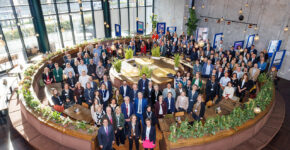CHARM-EU International Master's Degree in "Global Challenges for Sustainability"
Since 2021, theCharm-EU university alliancehas been offering a transdisciplinary and international master's degree on the theme of sustainability. The new version of this joint degree allows future students to follow a common curriculum at the nine Charm-EU partner universities within a truly interconnected European campus. Students also get to study at least one semester at one of these prestigious institutions. Registration is open until February 22, 2026.
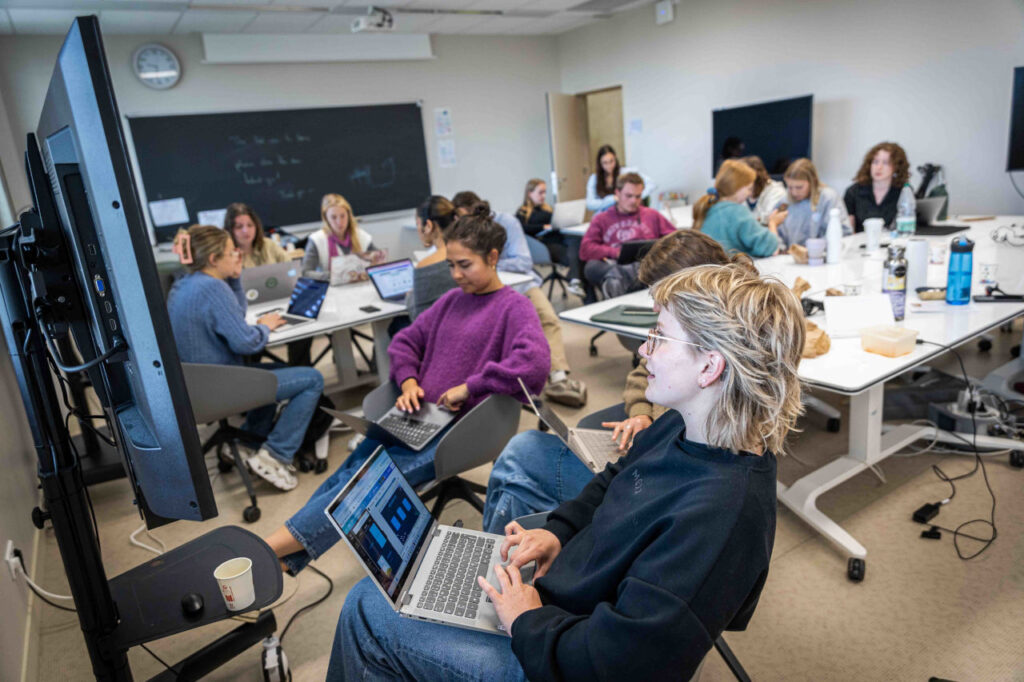
What are the career opportunities?
Resolutely transdisciplinary, this unique four-semester program (120 ECTS) taught in English is aimed at holders of a bachelor's degree, regardless of discipline, who wish to acquire advanced knowledge in sustainable development and tackle global societal challenges. Its particularly innovative teaching model enables students to become "complexity managers" who can devise and lead projects addressing societal challenges related to water, food, health, and life sciences, as well as energy and sustainable cities.
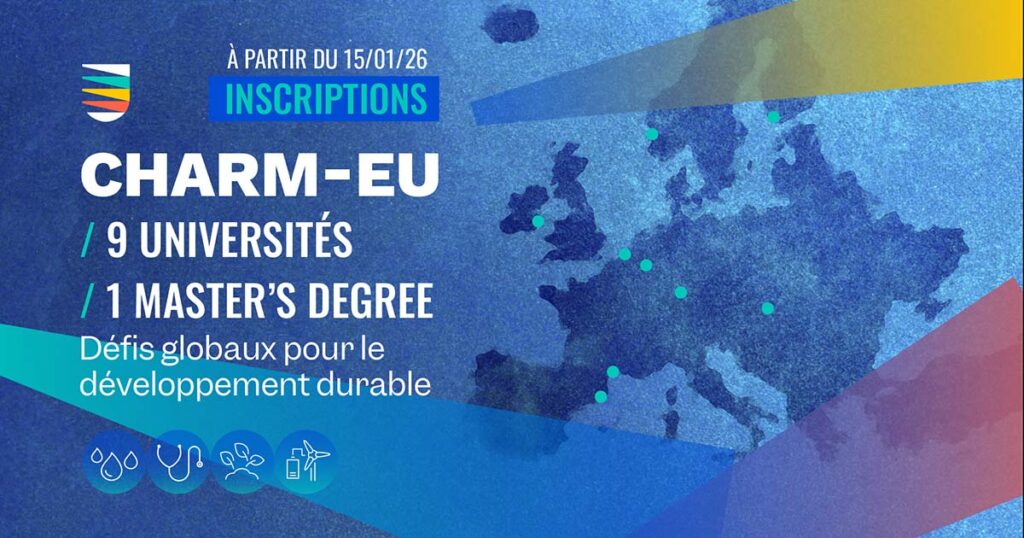
A collaboration between nine prestigious universities
In its new version, open for enrollment on January 15, 2026, this European degree is jointly awarded by nine member universities of the Charm-EU alliance:the University of Barcelona(Spain),Trinity College Dublin (Ireland),the University of Utrecht (Netherlands),Eötvös Loránd University in Budapest(Hungary), the University of Montpellier, Åbo Akademi University (Finland), the University of Würzburg (Germany), the Ruhr-West University of Applied Sciences (Germany), and the University of Bergen (Norway).
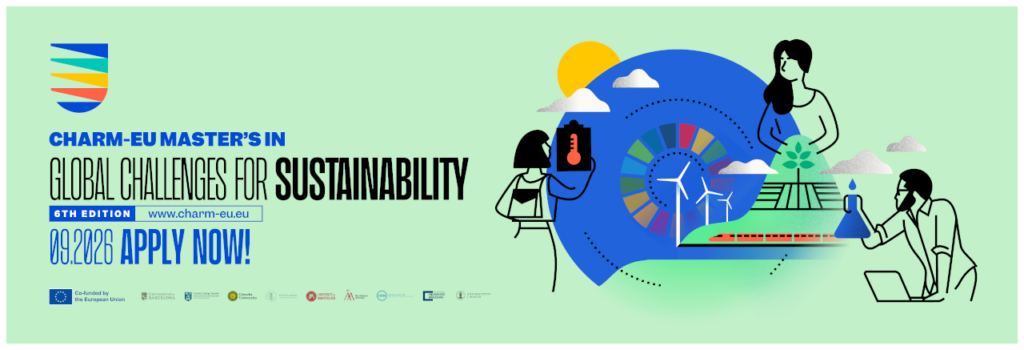
An interconnected European campus
This degree program lasts two years, or four semesters, and offers numerous mobility opportunities that allow students to study at several partner universities during their studies. Please note that at least one semester of mobility at one of the alliance's universities is mandatory.
Hybrid, teaching is carried out synchronously by teams of teachers from the nine international institutions. Interdisciplinary teams pool their skills and expertise to offer the best experience to students on the nine campuses.
first semester
A preparatory phase consisting of three mandatory modules: Social Innovation, Sustainability, and Transdisciplinary Research.
second semester
A flexible phase consisting of several modules, with students required to choose one of the following four tracks:
Water:
- Extreme variations in the water cycle and their complex consequences
- Adaptation measures and strategies in water management
- Resilient Cities: Water in Urban Environments
Health and life sciences:
- Health systems and policies
- Health challenges
- Healthy living and well-being
Food:
- Link between food, health, and the environment
- Food systems and their transformations
- Socially just and sustainable food systems
Energy and sustainable cities:
- Emerging technologies and smart cities
- Sustainable urban planning
- Resource management and resilience
- Politics, climate change, and the future of sustainable cities
third semester
An experimental phase that provides the opportunity to undertake an internship in a professional environment within various types of organizations (private companies, public institutions, non-governmental organizations, research laboratories, etc.).
fourth semester
During this phase, called Capstone, students work collaboratively with their peers, academic staff, and external stakeholders (e.g., companies or associations) on a real-world sustainability challenge in Europe or around the world.
A unique educational model
The Global Challenges for Sustainability degree program focuses on students, who become active participants in their own learning. Based on solving real-world problems, this program offers students the opportunity to work with international peers and civil society actors to resolve complex societal issues related to sustainable development. It also implements an innovative competency-based assessment method, with individual support from a mentor throughout the program and regular feedback on results and the means to be implemented to progress.
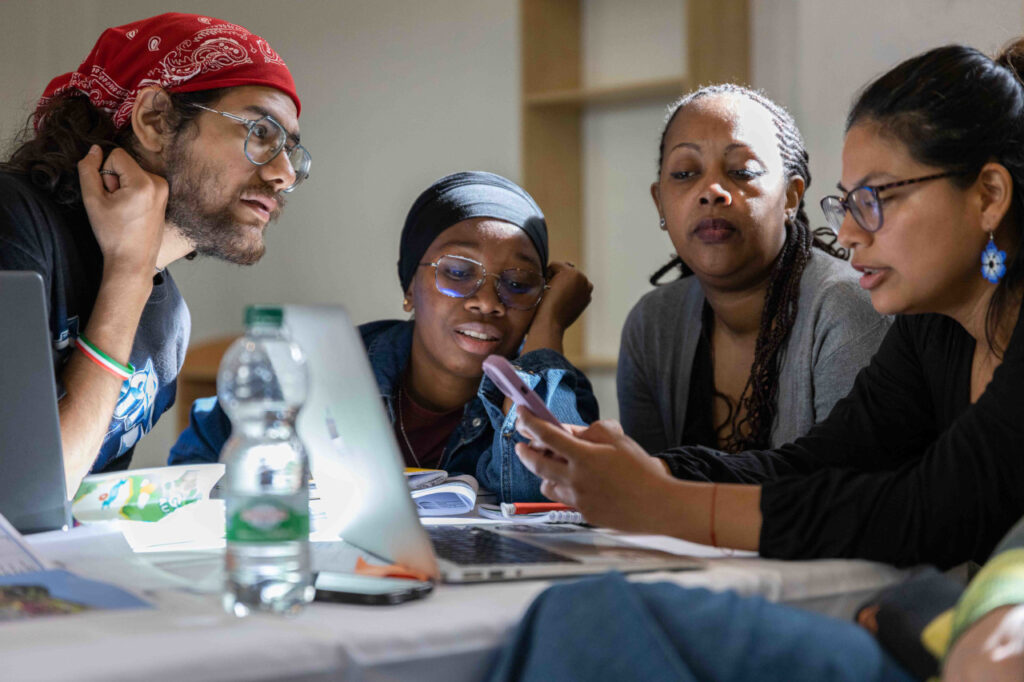
Who can take this training?
As the program is interdisciplinary, all profiles are welcome. Admissions are open to students with a bachelor's degree in any discipline. Applicants will be required to demonstrate a C1 level of English at the start of the program in September 2026. It should be noted that this degree is recognized in France as a master's degree.
Registration fees?
Free for European students (EU/EFTA) who have completed their final year of study in France.
€5,000 for students who are European citizens.
€24,000 for students from outside Europe.
Important: Students can apply for mobility grants under the Erasmus+ program.
How to apply?
Registration is open from January 15 to February 22, 2026. All information about courses and online application procedures is available on the Charm-EU website.
For more information on administrative procedures at the University of Montpellier, contact rf.re1772123783illep1772123783tnomu1772123783@ue-m1772123783rahc1772123783.
For more information, an online information session (in English) will be held on January 14 at 6 p.m.



